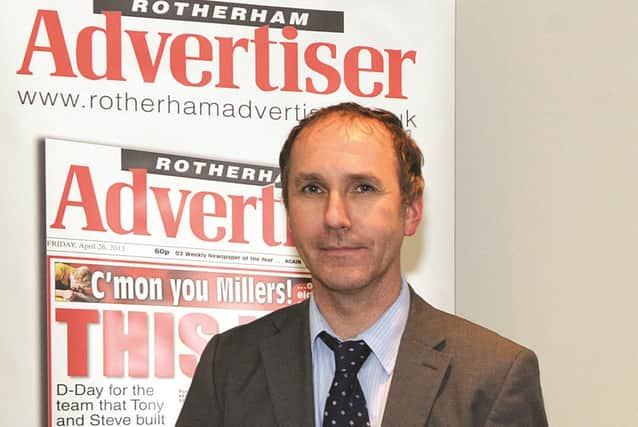EDITOR’S PERSPECTIVE: Now, for £1m...


---“TEGUCIGALPA.”
It was World Cup 1982, in the far flung country of Spain, and I was home from school to watch the hosts take on Honduras in Valencia.
I had already learned the name of the capital of what I assumed to be an African country (it’s in Central America. Yes, really!) by the time the commentator told me to get ready for a “goal-filled jamboree”.
Advertisement
Hide AdAdvertisement
Hide AdThanks to the chap on the TV I also knew it had been engaged in a long-term conflict known as the “Football War” with US-backed El Salvador.
Eight-nil to Spain, I confidently predicted. It finished 1-1 and I vividly remember the Honduras keeper lying flat out on the pitch, in tears, as his country later exited the group stages by a single point.
Tegucigalpa. It would come up in quizzes — I would imagine being asked what was the capital of Honduras on Who Wants To Be A Millionaire? — and I would be shouting it out way before the question had concluded, by this point also a little more clued up on its location.
I soon learned about genuine African countries such as Cameroon and Nigeria, plus the counties in which places such as Gillingham and Shrewsbury resided, that Berwick was the only English team playing in the Scottish League and Universitatea Craiova were a top Romanian team, Dukla Prague the same in Czechoslovakia.
Advertisement
Hide AdAdvertisement
Hide AdAll this because of football. Other bits came from watching cricket and rugby league — surely I would never have been to towns such as Whitehaven, Workington or Batley if it wasn’t for travelling to watch the mighty Keighley Cougars.
It wasn’t just the going. It was the finding out about places, which you were otherwise ignorant about. There was no internet, you had to plot your journey by map and would end up in a town such as Featherstone, discovering its mining heritage, the pubs and shops that only existed because of the pits, gleaning a bit of history from the match day programme and, although you didn’t appreciate it at the time, leaving a little bit mentally richer for your experience.
Even something as basic as a nickname helps you appreciate the background of clubs, the industries, the church, the area from which the club hailed — Posh River Plate or Boca Juniors from the slums of Buenos Aires, for instance, or teams with religious or political affiliations such as those of Manchester and Liverpool, and plenty in Northern Ireland.
It riles me when fans came up to this part of the world and chant “dirty northern ****hole” without any appreciation as to why they may have gained that impression.
Advertisement
Hide AdAdvertisement
Hide AdAs the World Cup kicked-off last week I Googled Tegucigalpa and discovered a vibrant city, yet one in turmoil, its people living in poverty and, given it houses the world’s highest murder rate, presumably in a degree of fear.
This year’s competition features the usual suspects — not the Honduran murderers — alongside hosts Qatar, who presumably would not be involved at this stage of the competition were it not taking place there.
A British protectorate until 50 years ago, the country has one of the world’s largest energy reserves (Now what could be done with those?), a shoddy human rights record and an extremely high growth economy.
We wouldn’t have known that in 1982, but the world has changed a lot since that competition in Spain.
“Now for your million pound question Andrew: what city exists at the opposite end of the wealth spectrum to the Qatari capital of Doha?”
“That would be Tegucigalpa, Jeremy.”